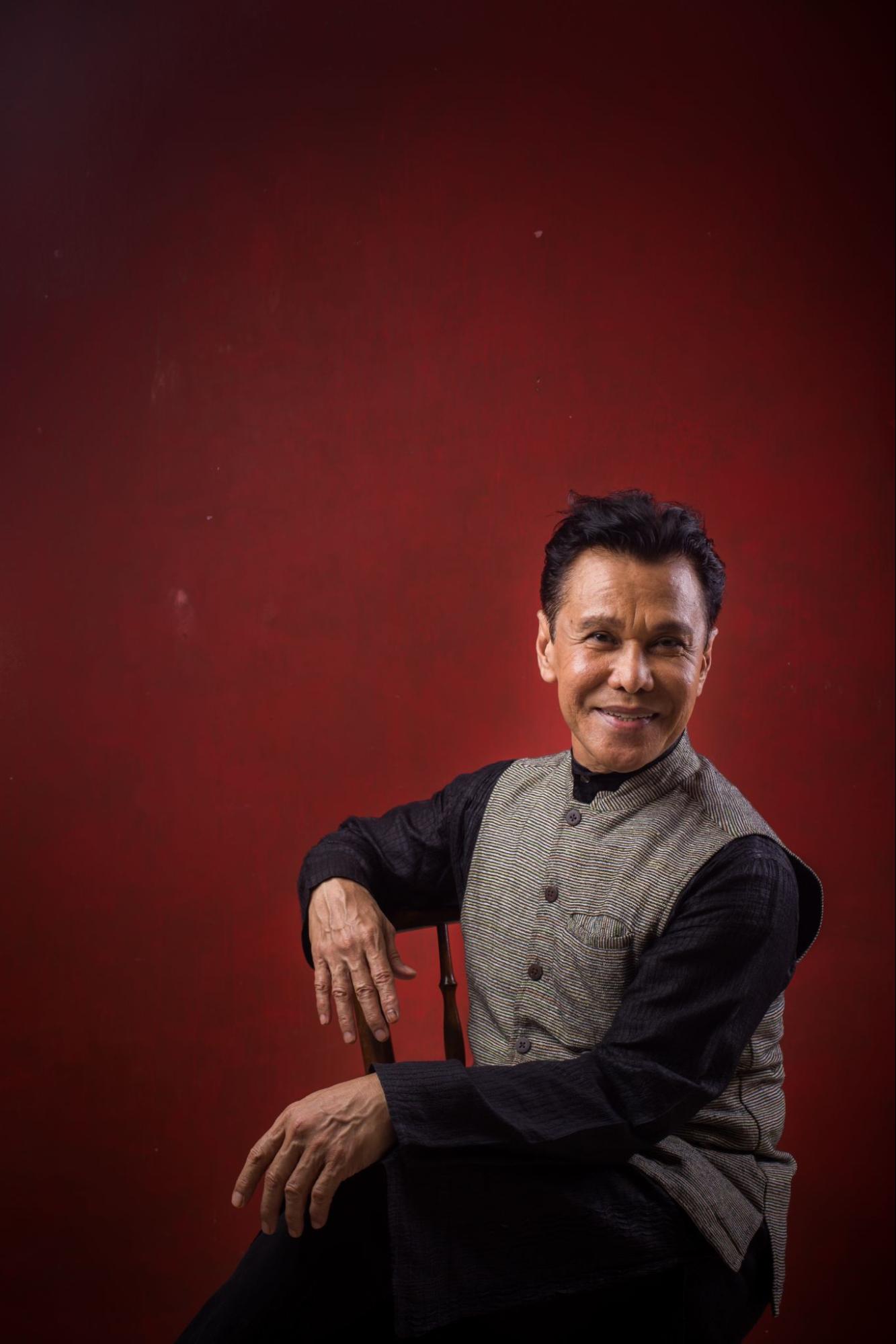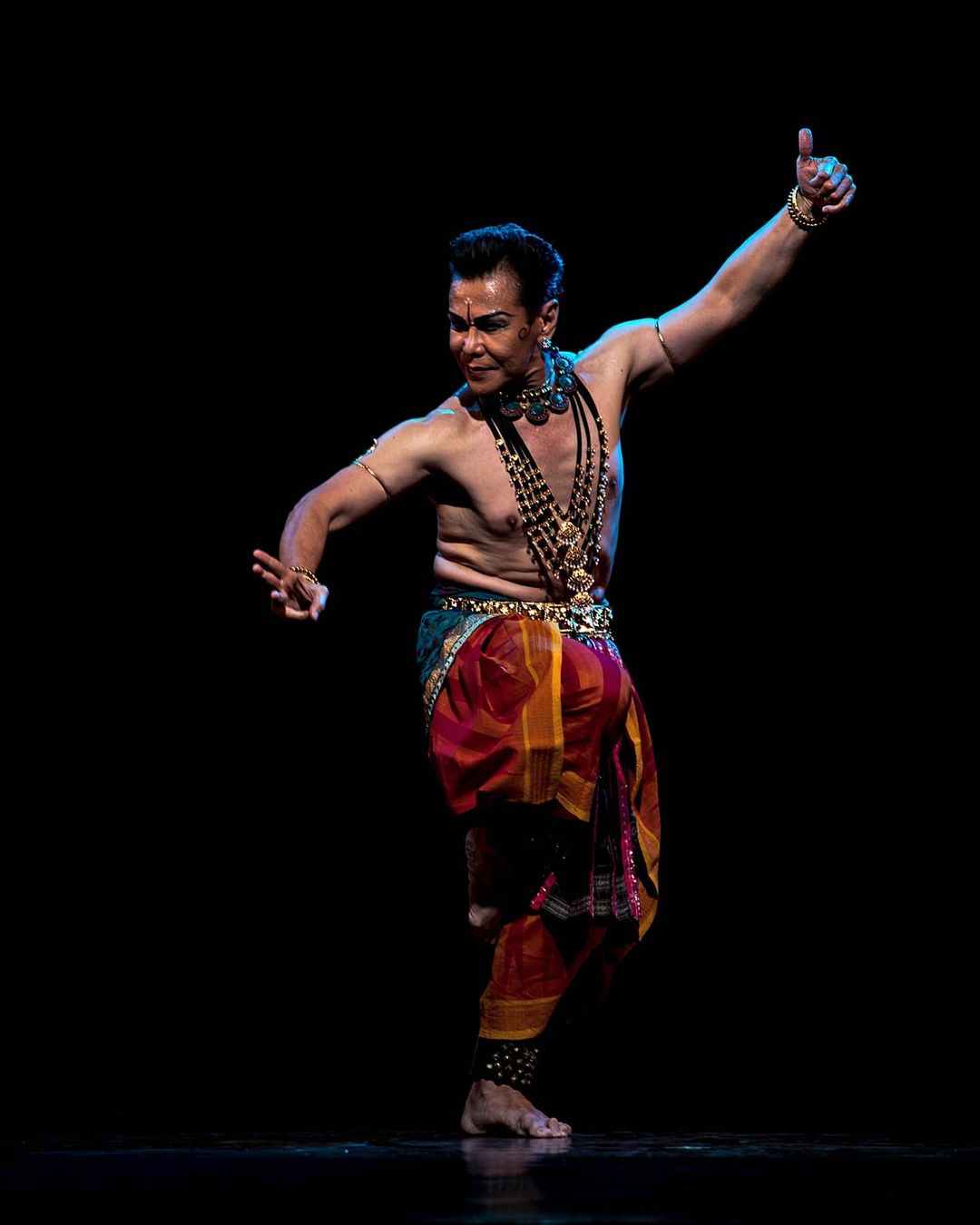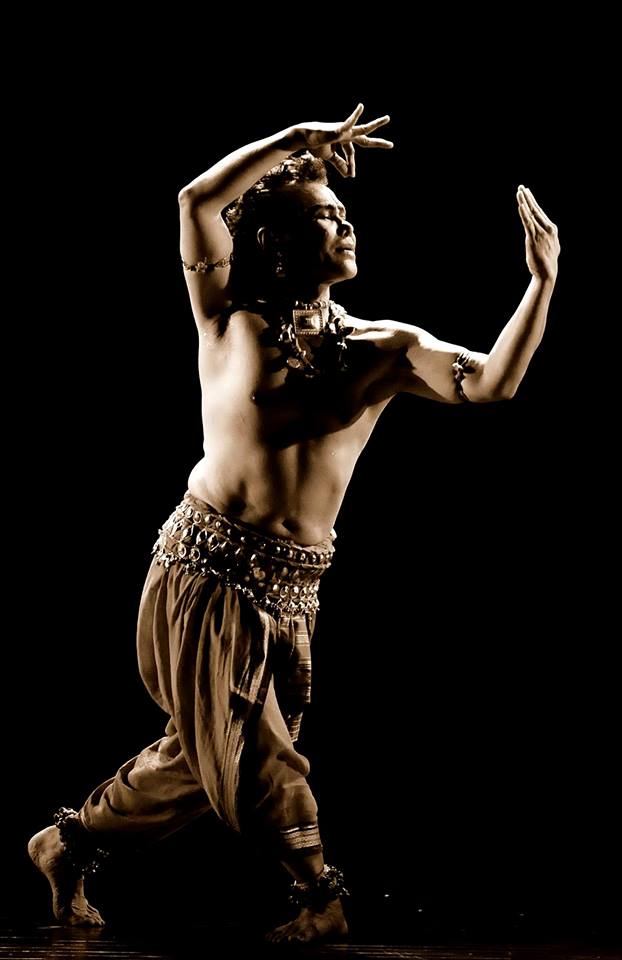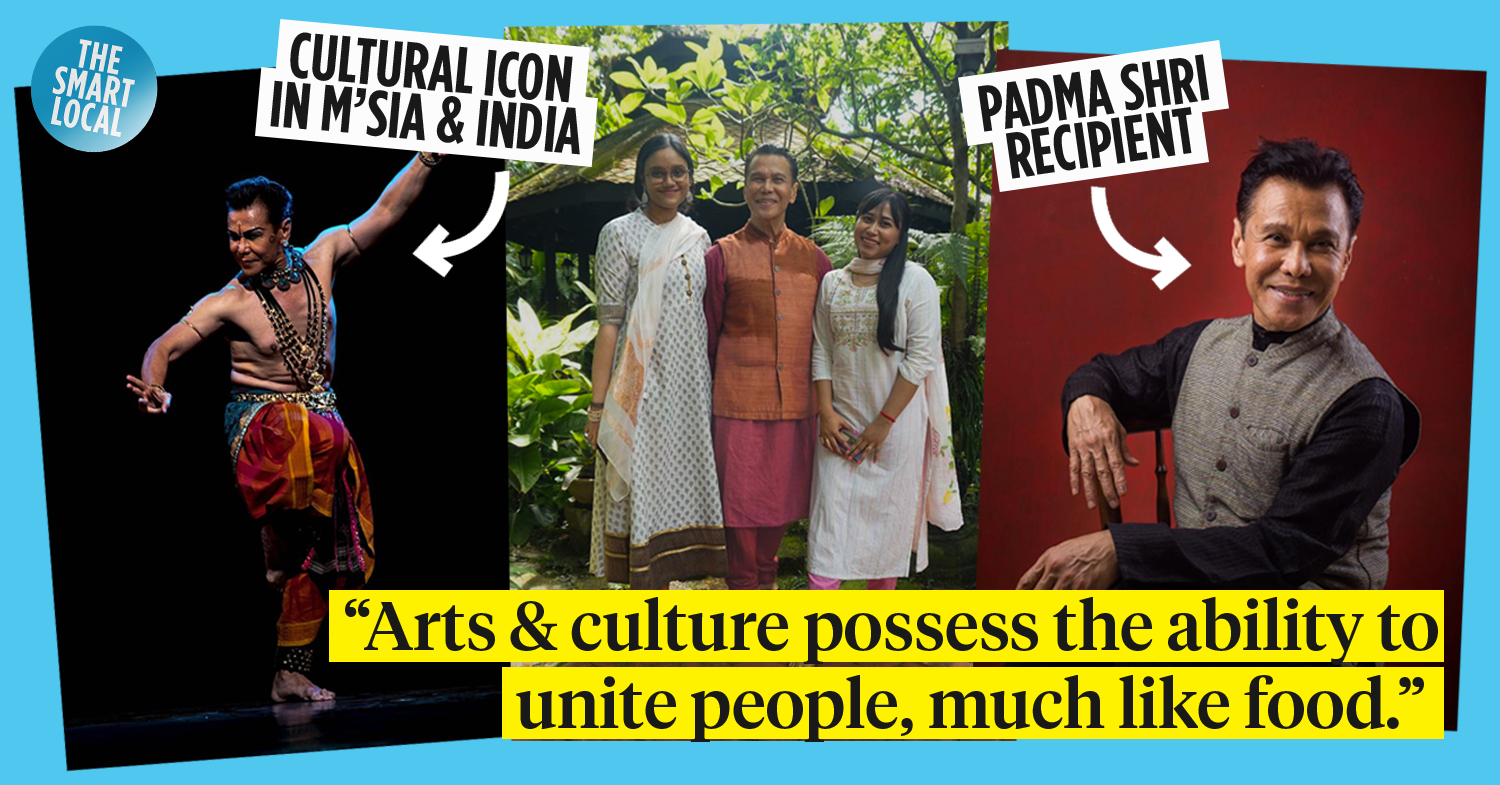An interview with Datuk Ramli Ibrahim
Datuk Ramli Ibrahim is a renowned Indian classical dancer whose artistry has captivated audiences across the globe for decades. This 70-year-old is known for his unwavering dedication to the art of Odissi.
In recognition of his achievements, the Selangor-born dancer was not only bestowed the coveted Datuk title by the honourable Sultan of Malaysia in 2013, but also the prestigious Padma Shri award by the Government of India in 2018. He is only the second Malaysian to receive the latter honour.
This maestro’s artistic journey dates back to 1983, when he first founded the Sutra Foundation, then known as Sutra Dance Theatre. Nestled in the heart of Titiwangsa, this sanctuary promotes the arts through creative activities such as dance workshops and art exhibitions.
While listing his numerous awards would be akin to capturing stardust in a jar, we can however glean some of his insights on the current climate of the arts and culture scene in Malaysia. The Smart Local Malaysia had the opportunity to conduct an up-close and personal interview with the master – and he shared with us the importance of arts and culture, and how he manages to stay youthful.
Keep reading on to find out more:
The interview
TSL MY: How does Indian classical dance foster cross-cultural appreciation in Malaysia?
Ramli Ibrahim: I believe that arts and culture possess a powerful ability to unite people. Much like food, it forms a collective consciousness which forges connections among diverse communities in Malaysia.
Indian classical dance in particular is revered for its intricacy and sophistication. Much like any art form, it demands a certain amount of dedication and relentless practise. To truly appreciate and excel in this art form, one must engage in sadhana, an intense spiritual practise and discipline. This ultimately gives birth to a powerful sense of consciousness that brings us together in appreciating the arts and culture.
I believe we must also be aware that being immersed in an art form is key to unlocking its true essence. As more people delve into its complexities and revel in its beauty, a deeper understanding and admiration for the art form are developed. So, I believe the pinnacle of appreciation comes when viewers witness the art at its most magnificent – recognising the dedication, skill, and passion invested by the dancers.
TSL MY: What are the notable differences and similarities between your on-stage and off-stage presence?
Ramli Ibrahim: If I can be honest, I’m not exactly the kind of person who analyses so much. I guess I’d say I’m not so conscious off-stage.
On-stage, however, I believe there’s a strong muse which demands a strong commitment on your part. This is always the truth, but you know in order to be free within your art, you have to be willing to fully submit yourself to express the rasa or bhakti during a performance.
So I would say that I’m terribly focused while I’m on stage, or much more conscious, in a better choice of words. I think that’s the notable difference.

Image credit: Sutra Foundation
TSL MY: How do you envision the future of this ancient art form in M’sia?
Ramli Ibrahim: When contemplating the future of our country, I think one cannot ignore the profound influence of leadership. However, true leadership extends beyond the realms of the economy.
It’s important for leaders to appreciate and not think of arts and culture as mere afterthoughts but rather as essential pillars which contribute to the fabric of a nation’s identity.
Also, if you happen to look into our education system, there’s a lack of introduction to the arts and culture as an important character building for our children. So we can’t blame them if they can’t recognise what a rebab or mridangam is – rather, they recognise what K-pop is.
I mean, there’s nothing wrong with recognising that, but there you are – we are not exposed to our own culture, so it’s important to promote the richness of our arts and culture, particularly in our education system.

Image credit: @senthyphotography via Instagram
TSL MY: What are some of the challenges you faced in promoting classical dance in multicultural society like Malaysia?
Ramli Ibrahim: You know, if I can be honest, sometimes it gets a tad bit quote-unquote “boring” to justify the common misconception when it comes to the topic of a Malay man performing Indian classical dance.
I think a handful fail to comprehend the difference between spirituality and religiosity. Classical dance is an artistic expression rich in symbolism, connecting us deeper to spirituality.
For example, when we try to interpret a flower, we actually create a symbol of the flower through our movements, such as the intrinsic hand gestures or the rhythm of our feet.
It is a universal language connecting people and culture, and I think this creative outlook needs to be nurtured and encouraged, especially in a multicultural society such as Malaysia.
TSL MY: You wear life so well, especially at the age of 70. What’s your secret?
Ramli Ibrahim: You know, when someone asks me this question, my favourite answer is suffering. Suffering makes me young, but of course, I’m joking. I don’t really know how to answer that. I guess every night I go back to bed and take off the mask and see a crumpled shape of me, or whatever.
All jokes aside, I think the thing about life is not to be too conscious of it. Living life fully is an art in itself, so it’s important not to be overly conscious of it. I don’t carry the weight of life like a burden – I approach it with a sense of ease. I take my art seriously, but not the flattery that comes along with it, and wear it like an albatross hanging around my neck.
Plus, I’m always on the move with my next project on the horizon, so there’s always something new to look forward to.
I also believe that time is precious and it literally flies, especially for us dancers with all those knee and ankle problems. Life’s too short to sweat the small stuff – I guess that’s my secret.

Image credit: Sutra Foundation
TSL MY: If you were given a chance to rewrite history, would dance be your lifelong purpose of would you have travelled the road most taken?
Ramli Ibrahim: I would have liked to have pursued anthropology and the visual arts instead of engineering. My heart is in the art world, and I couldn’t deny that calling, so you often see me spending my time with painters and dancers.
The passion for art is something that sets your soul on fire, and when you’re performing an art form, whether dance or music, without passion, you cannot survive.
An artist must have the “angin” or the inner push to express themselves, so I decided to follow mine despite the prevailing focus on science and technology.
However, I would like to congratulate my friends who are now billionaire developers and engineers.
Nonetheless, I am glad I stayed true to myself and did what I loved and what made my heart sing. I believe that’s where true happiness lies.
TSL MY: What’s your message for our young generation or anyone out there in pursuit of their dreams?
Ramli Ibrahim: If you notice the Z generation, there is this element of wanting instant gratification, especially in classical art. It is imperative to accept that there are no shortcuts to this. You have to invest in the work. Art demands attention, which can only be given by you, the artist.
As for those in pursuit of their dreams, I believe that as you grow, it becomes vital to embark on a journey of self-discovery. It’s important to explore your passions and uncover your true interests. You can’t be afraid to take risks. Being overly cautious might cause you to miss the train that could shape your future.
So as risky as it sounds, you need to take that plunge, trust your instincts, and allow the universe to guide you. It always has a way of looking after you, especially when you’re following your destined path.
It’s important to also know that mistakes are an inevitable part of life. But here’s the thing – those mistakes are invaluable. They shape your character, imparting unique lessons which can only be discovered by making them. So if you ask me, embrace those mistakes.
Get to know Ramli Ibrahim, Malaysia’s Master of Indian classical dance
As our conversation drew to a close, a profound sense of realisation washed over us: that is, acknowledging the blessings of living in a multicultural country adorned with a rich tapestry of arts and culture. Among these treasures, Indian classical dance in particular embodies the transformative power of art in transcending our differences, whether it’s the colour of our skin or the language we speak.
Datuk Ramli Ibrahim stands as a true testament to this, by dedicating his life to expressing its beauty and becoming an inspiring beacon for generations to come.
His potent wisdom and passion breathe life into the essence of our beloved country. Through his graceful movements and eloquent words, he reveals that classical dance is more than mere entertainment. It is instead a divine language that bridges the gap between our earthly existence and the spiritual realms.
Having the pleasure to converse with Malaysia’s master of Indian classical dance illuminates the importance of staying rooted in our arts and culture, for it weaves a magical tapestry of unity for our nation. It is through these profound connections that Malaysians truly come alive.
As we bid our farewells, we can’t help but ask the master a question lingering in our minds – shall we dance, Datuk?
Also watch our interview with Datuk Ramli Ibrahim here:
The Smart Local Malaysia would like to extend our heartfelt gratitude to Datuk Ramli Ibrahim and the members of Sutra Foundation for their invaluable assistance in making this interview possible, and for their lovely hospitality during it.
Cover image adapted from: The Smart Local Malaysia & @senthyphotography via Instagram
Some quotes have been edited for clarity.
